Are strange noises coming from your car as you drive? Does it sound like a bell ringing in the distance? If so, you’re not alone. Many drivers have experienced this issue and often don’t know what to do about it or how to prevent it from happening again. In this blog post, we’ll cover all your burning questions and explain why your car might be making that dreaded bell ringing sound—plus provide some important safety tips for driving when it happens. So whether you just want to better understand what’s going on with your vehicle or would like assurance that you’re driving safely after hearing a strange noise, stay tuned – because here’s a breakdown of everything related to the mysterious bell-ringing problem.
What Sounds Should I Pay Special Attention to in the Car?
When you’re driving, the sounds of your car engine and exterior environment are important indicators of issues that may arise while on the road. One sound in particular that should never be ignored is a car bell ringing. This distinctive and loud noise is often an indication of serious problems with the vehicle, such as a loose belt or faulty wiring. It’s essential to pay close attention to this sound and take care of whatever issue is causing it before taking the car out again. If you hear your car bell ringing, make sure to pull over and investigate the source of the problem with a licensed mechanic or experienced auto technician. Ignoring this sound can lead to more serious issues down the road, so always err on the side of caution and take precautions as soon as you hear it. [1]
A loud screeching noise coming from the brakes could mean that your brake pads are worn out and need to be replaced. This is a common issue, but it can lead to more serious problems if left unaddressed for too long. Whenever you hear this sound, make sure to take your car in for service as soon as you can.
By paying close attention to the sounds your car makes, you can help prevent serious issues and keep yourself safe while on the road. If you ever hear a car bell ringing or any other loud noises coming from your vehicle, ensure to take it in for service immediately. Being proactive is always the best way to ensure that your car continues to run properly and safely. [2]
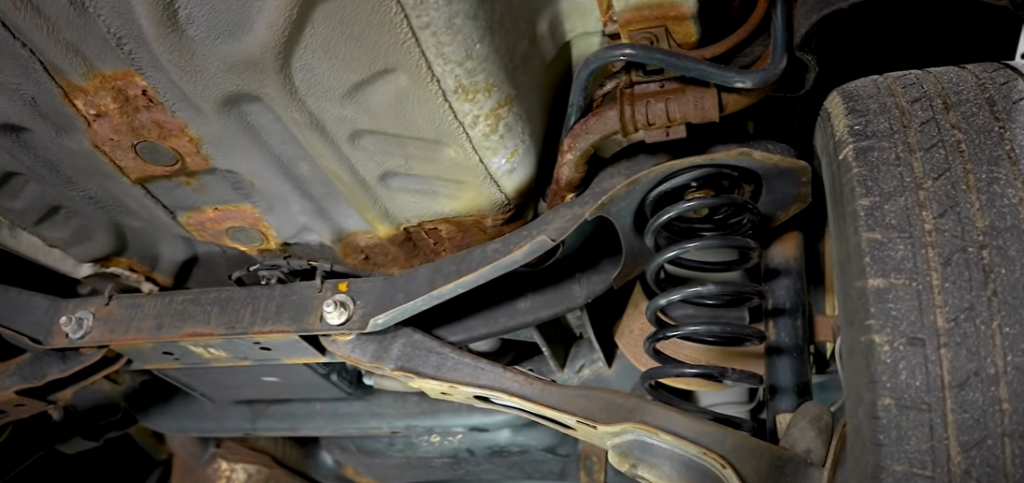
What can Extra Sounds in a Car Tell About?
The sound of a car can tell you a lot about its condition and performance. Sounds vary from engine noises, exhausts, brakes, tires, suspension and even the interior. All these sounds are indicators of how your car is running and what you should be looking out for.
Engine sounds are the most obvious indicator of how well your car is running. If you hear loud clunking, tapping or ticking noises, it may be a sign that something needs to be fixed and checked by your local mechanic. Exhausts can also tell whether your car is running correctly or not. If the exhaust is making strange noises such as rumbling, thumping or popping sounds, this could indicate an issue with the engine.
Brakes can also give an indication of how well your car is running. If you hear any screeching, grinding noises while braking then it could be a sign that the brakes need to be checked and possibly replaced. Tire sounds are another indicator of how well your vehicle is performing. If you hear any clicking, squealing or humming noises when driving, this may be a sign of worn-out tires or that the wheel alignment is off.
Suspension noises are also important to pay attention to when it comes to cars. If you hear clunking, squeaking, thumping or even rattling sounds while driving then this could indicate an issue with your suspension and should be checked by a local mechanic.
Interior sounds are also important to pay attention to when it comes to your car. If you hear any buzzing, rattling or squeaking noises in the cabin then this could indicate a fault with an interior component and should be checked by a professional.
These are just some of the common sounds that can tell you about the condition of your car. Paying attention to these noises can help you diagnose and solve problems with your car quickly and easily. By listening closely to your car’s sounds, you can keep it running smoothly for a long time. [3]
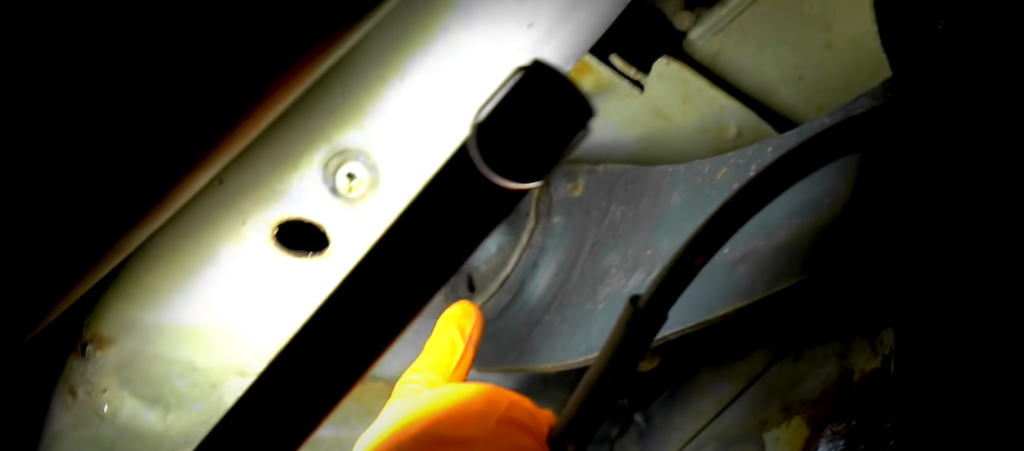
Why Is My Car Ringing Like a Bell?
Have you ever been driving and suddenly heard a loud bell-like sound coming from your car? Chances are it’s the engine warning you of an issue. But what could be causing this ringing?
The most common cause of a car producing a bell-like sound is due to excess air being pulled into the combustion chamber, usually caused by worn or broken components such as spark plugs, air filters or timing belts. If the car is having difficulty getting enough air, it will sound like a bell to warn you of potential trouble.
Other causes of this noise could include damaged or worn wheel bearings, failing alternators, and loose exhaust systems. It’s best to get your car serviced by a professional mechanic if you’re hearing this type of sound. The sooner the problem is addressed, the less chance it will cause serious damage to your car or wallet.
You should also be sure to regularly maintain your car, as this can prevent many potential problems that could cause a bell-like noise. This could include changing the oil and spark plugs, inspecting the air filter and checking for any leaks. [4]
How to Fix Car Ringing Noise?
It’s a common problem for car owners – you drive away in the morning and your vehicle makes some sort of strange ringing sound. We know how annoying this can be, so we’ve put together a few tips on how to fix or avoid it.
- Check Your Brakes – If you hear a metallic ringing noise when you apply the brakes, it could be a sign that your brake pads are worn out and need to be replaced. Make sure that you have the brakes checked by an experienced mechanic before attempting any repairs.
- Tighten Suspension Components – Another common cause of car ringing noises is loose suspension components. If you hear a rattling noise, check under the hood for any bolts or nuts that are loose.
- Replace Exhaust System – If you hear a loud, roaring noise coming from your car, it could be an indication that the exhaust system needs to be replaced. This is especially true if the noise is louder after starting up the engine and driving for a few minutes.
- Clean Out Your Engine – A ringing or pinging sound can sometimes be caused by a build-up of carbon deposits in the engine. To get rid of this problem, use an engine cleaner to remove any dirt and grime from the components.
- Change Your Oil – When your car’s oil is old or low, it can cause excessive noise. Make sure that you change your oil regularly in order to keep the engine running smoothly and reduce any noise.
By following these tips, you can help to reduce or eliminate any car ringing noises that may be occurring in your vehicle. If the problem persists, however, don’t hesitate to take your car to a mechanic for further inspection and repairs. [5]
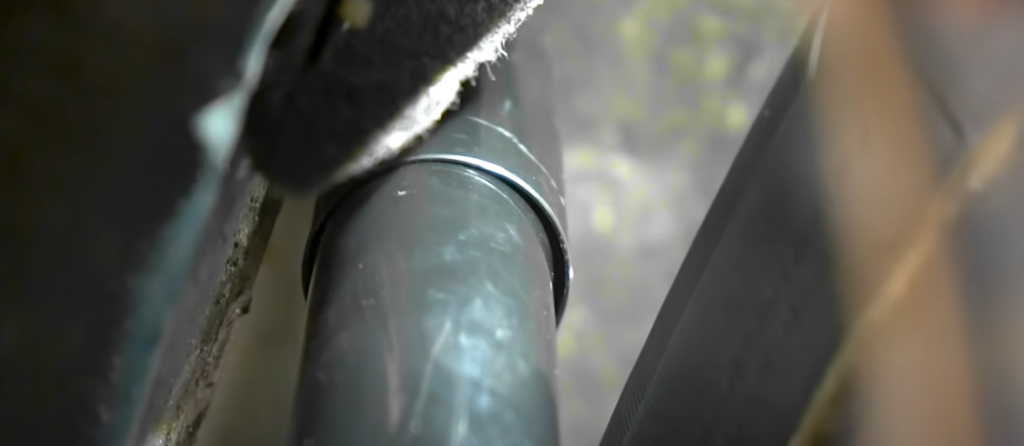
How to Care for My Car?
It’s crucial to know how to care for your car in order to keep it running smoothly and maintain its value. Here are some tips for keeping up with regular maintenance:
- Schedule regular oil changes – This is one of the most important things you can do to maintain the performance of your engine and protect the lifespan of your vehicle.
- Check tire pressure – Low tire pressure can wear down your tires faster and cause poor fuel economy.
- Change air filters regularly – This will help keep your car running more efficiently as well as improve airflow into the engine for better performance.
- Have brakes inspected and serviced – Brake failure can be dangerous, so it’s important to have them serviced and replaced when necessary.
- Clean car interior regularly – This will help extend the life of the vehicle’s interior components and make it look nice for a longer period of time.
Follow these instructions, you can keep your car running like new while helping to protect its value over time. [6]
Tips for Keeping Fresh Air in the Car
Maintaining a proper air quality in the car is an important part of staying safe and comfortable on the road. To help maintain a healthy and pleasant atmosphere inside your car, here are some tips for keeping fresh air in the car:
- Change your cabin air filter regularly. This will ensure that pollen, dust, dirt and other debris don’t get trapped inside the vehicle, leading to bad odors and poor air quality.
- Keep your windows clean and clear of dirt. Wiping away any dust or residue on the glass will help maintain a healthy level of airflow throughout your car’s interior.
- Ventilate your car regularly. Opening up all the windows for a few minutes at least once a day can help to freshen up the air inside your car.
- Open vents and use recirculation mode. Set your air flow settings to open ventilation with no recirculation, which allows fresh air from outside to come in and circulate freely throughout the car.
- Keep pets outside of the vehicle when possible. Pets often carry odors that can linger in the car, so keeping them out of the vehicle when you are on the go is an important way to maintain fresh air.
- Use essential oil diffusers or scented candles inside your car. These products can help to refresh and deodorize the air in your car with natural fragrances. [7]
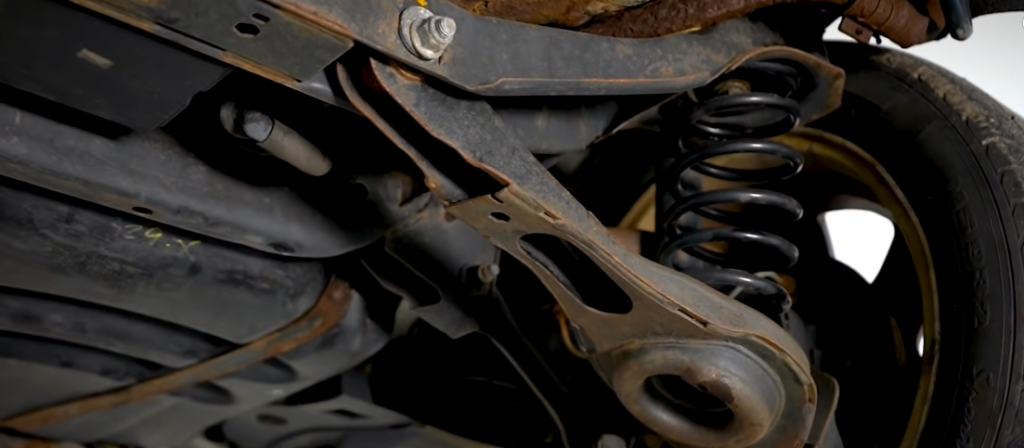
When Is It Time to Get Service?
Knowing when it’s time to get your car serviced can sometimes be tricky. It doesn’t always line up with the service interval in your owner’s manual, as some parts of your vehicle may need more frequent attention than others. Here are a few signs that you should consider getting regular maintenance and car service:
- Your vehicle is due for an oil change: Most car owners know that they should get their oil changed every 3,000-5,000 miles or so. If you’ve reached the end of your vehicle’s recommended service interval or if you’ve gone past it for any length of time, you’ll want to make sure that your motor is running smoothly and efficiently with an oil change.
- You’re hearing strange noises: If you start to hear popping, squeaking, or other weird sounds coming from your car, it’s a sign that something isn’t quite right. It could be something minor like low brake fluid levels or something more serious like worn wheel bearings. Regular service and maintenance will help make sure these kinds of issues don’t develop into larger problems.
- You’re experiencing strange smells: If you start to smell something strange coming from your vehicle, it could be a sign that something is wrong. Burning oil or antifreeze, for instance, are signs that things may need to be checked out right away.
- You’re noticing vibration or shaking: If your vehicle starts to vibrate and shake when you drive, it could be a sign that something is wrong with the suspension system. Regular service will help make sure that these kinds of issues don’t become major problems.
- Your brakes aren’t working properly: If you notice that your brakes are making strange noises or aren’t stopping the way they used to, you should get them checked out. Brakes are one of the most important safety features in your car and having them working properly is essential for a safe ride.
Getting regular car service is an important part of making sure that your vehicle remains reliable and safe. If you’re ever concerned about any kind of issue with your car, make sure to get it checked out by a professional. They’ll be able to diagnose the problem and give you the best advice on how to fix it. [8]
How to Drive Safely?
By following these simple instructions, you can keep everyone safer on the road:
- Always wear a seatbelt and make sure all passengers do as well. Even if the trip is short, the risk of an accident increases dramatically if someone isn’t properly secured.
- Ensure your tires are well maintained and in good condition. This includes checking air pressure regularly, as underinflated tires can cause a blowout or worse.
- Slow down when driving at night, especially on unfamiliar roads. Reduced visibility makes it harder to spot obstacles in the road ahead and can lead to more serious accidents.
- Pay attention to the speed limit and all traffic signs. It’s easy to overlook these important rules, but doing so can put you at risk of a ticket or worse.
- Avoid driving while distracted, whether it be due to texting, talking on the phone, eating, or anything else that takes your concentration away from the road.
- Make sure your car is in good condition, including periodic oil changes and regular maintenance. Regular upkeep can help detect any potential problems before they become more serious.
- Never drive while under the influence of drugs or alcohol. This puts everyone on the road at risk and could have dire consequences if an accident were to occur. [9]
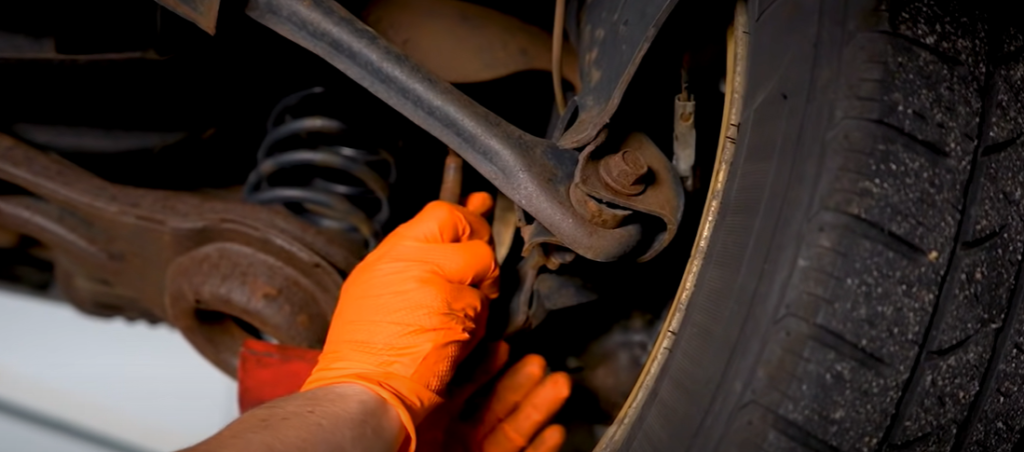
FAQs
Why does my car engine make a ringing sound?
In some cases, a ringing sound coming from the engine compartment of your car can indicate a couple of different issues. It could be an issue with the serpentine belt, which is responsible for running several components in the engine including the water pump and alternator. If not that, it can also suggest problems with worn out pulleys or bearings in other parts such as an idler pulley, crankshaft bearings or camshaft bearings. If you hear a ringing sound coming from your engine, it is best to take it to an authorized mechanic for diagnosis and repair.
Why is my car making a noise?
A lot of car owners have experienced an odd noise coming from their vehicle and wondered what it could be. Sometimes the sound can be a sign of something more serious, like engine trouble or suspension issues. If your car is making any kind of strange noises, it’s important to take it into a certified mechanic as soon as possible so they can diagnose the problem and fix it. Regular car maintenance can help prevent some of these issues from happening in the first place, so be sure to stay on top of routine service visits.
Why is my car ringing when I accelerate?
One of the most common causes of a car’s engine making a ringing noise when you accelerate is worn piston rings or valves. This can be due to the accumulation of dirt, sludge, and other foreign materials in the engine over time. Worn piston rings may also cause low compression, which can lead to poor performance as well as increased emissions. If your car is producing a ringing noise when you accelerate, it is important to have it checked out by a mechanic as soon as possible.
Why is my car making a high-pitched whistling noise?
Check if the noise is coming from the engine or exhaust system. If it’s coming from the engine, it could mean that something in the belts and pulleys isn’t working properly. Alternatively, if it’s coming from the exhaust system, it could indicate a blockage, such as a buildup of soot.
Useful Video: Dinging, Clanging, Ringing Sounds While Driving? Diagnose Suspension Noise on Your Car!
The Bottom Line
All in all, bell ringing from your car can be more than just an annoyance – it’s a clue that something is wrong with your vehicle. Knowing how to deal with the problem and when to call for service are key elements of driving safely. When unexpected noises happen, make sure to check your car and see if it needs servicing. Taking the time to do this will help reduce any long-term damage your vehicle may have sustained from the bell ringing. Remember: although bells can be a warning sign, keeping up with regular maintenance on your vehicle is key for safety on the road and peace of mind for drivers everywhere.
References:
- https://www.hansmaautomotive.com/tips/2021/6/8/10-car-sounds-you-shouldnt-ignore
- https://www.carcredittampa.com/5-engine-noises-that-require-immediate-attention/
- https://www.repairsmith.com/blog/common-car-sounds-how-to-describe-them/
- https://carbasicsdaily.com/why-is-my-car-ringing-like-a-bell/
- https://vehiclefreedom.com/car-making-humming-noise-when-parked/
- https://www.artofmanliness.com/skills/manly-know-how/heading-out-on-your-own-day-21-maintaining-your-car/
- https://news.ucr.edu/articles/2020/01/13/clearing-air-inside-your-car
- https://www.kellycar.com/posts/blog-car-service-schedule
- https://newsinhealth.nih.gov/2020/06/safe-driving


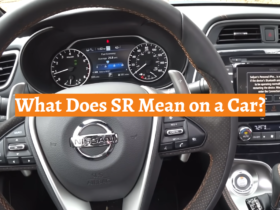


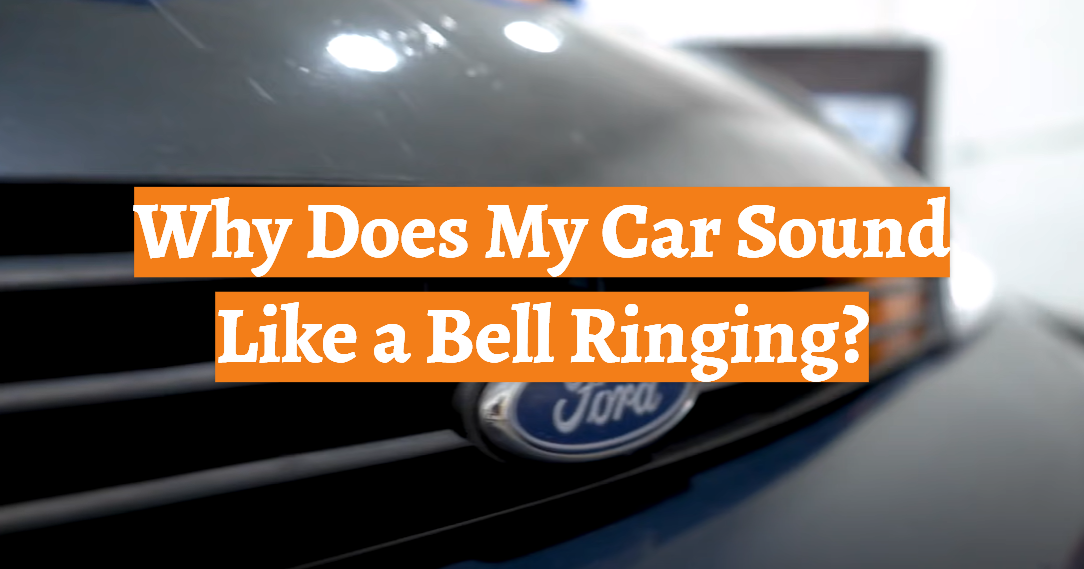
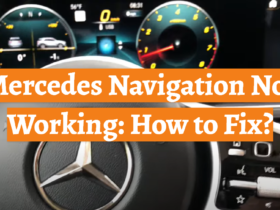
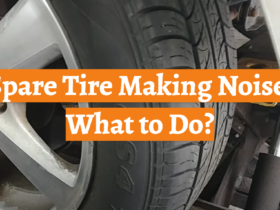


Leave a Review